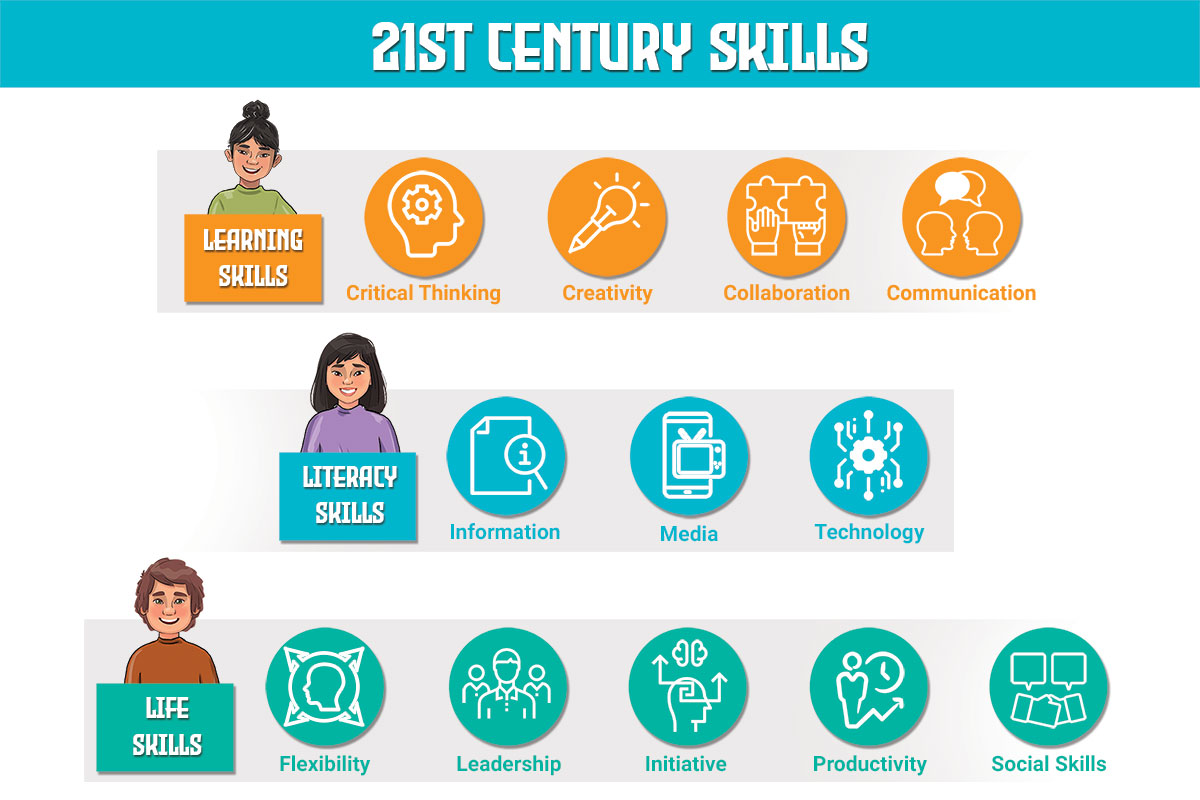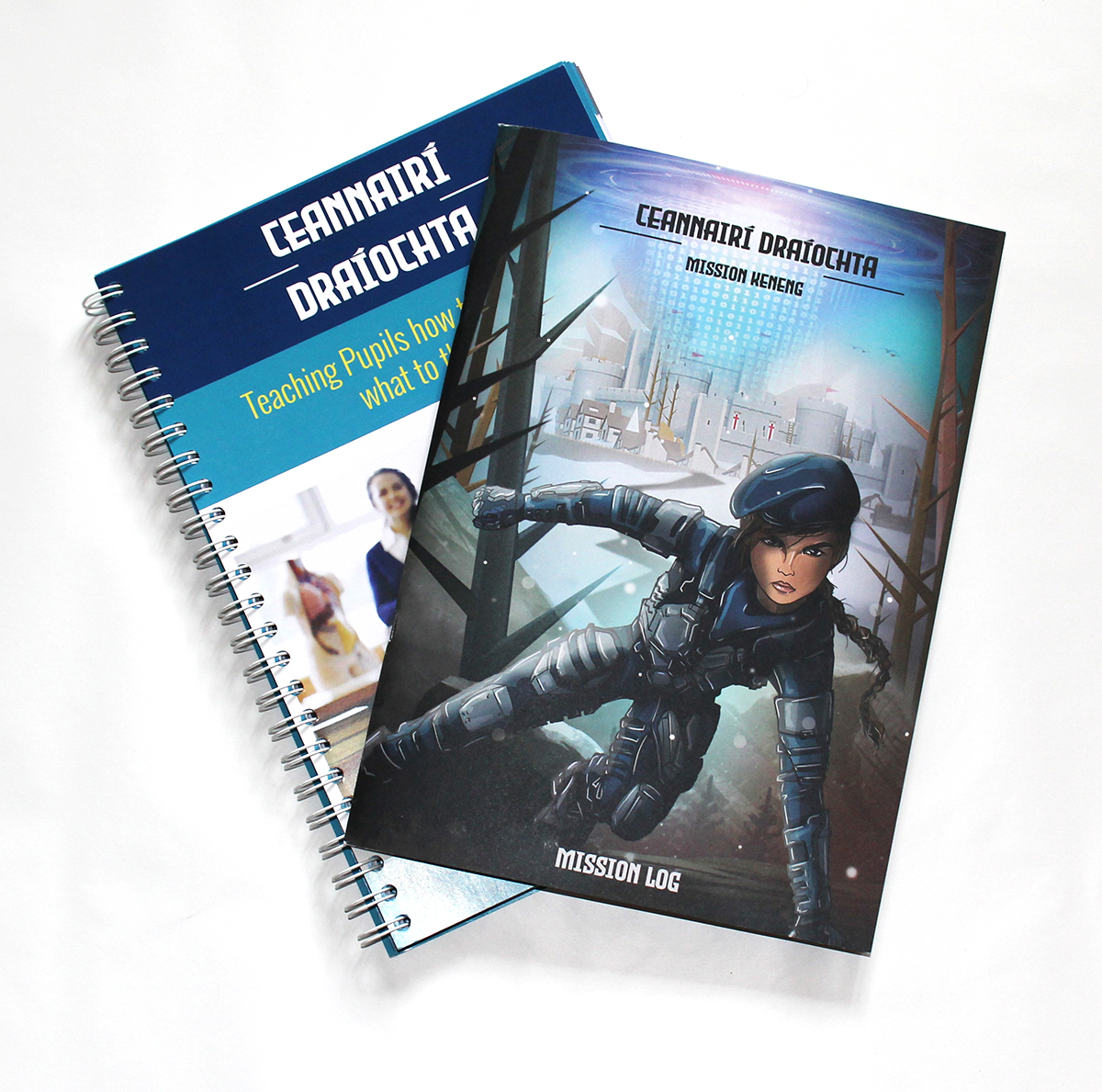21st century skills form the foundation of what we do here at Zeeko. Our programmes, content and communications are all focused on empowering young people through 21st century skills so that they can go on to become successful active citizens in the future. However, while we know 21st century skills inside out, we realise that others in the education community may not be as familiar with the concept. So here is your crash course on 21st century skills and why they are so vital in the future of education.
What are 21st century skills?
21st century skills are skills, abilities and attributes that have been recognised as necessary for success in the 21st century. The identification and implementation of 21st century skills into education and workplaces began in the United States but has since spread worldwide through national organisations such as the Organisation for Economic Co-operation and Development (OECD).
21st century skills are divided into 3 categories, ‘Learning Skills, ‘Digital Literacy Skills’ and ‘Life Skills’.

Here is a breakdown of what each skill means and why it is so important that we introduce these concepts and teach these skills in the classroom.
- Critical Thinking: Critical thinking is the act of analysing facts, asking questions and coming up with solutions. The outcome of critical thinking is problem solving. Understanding and implementing critical thinking skills can help children to make informed decisions rather than snap judgements. If faced with a problem, rather than saying ‘I don’t know’ and accepting that answer, they will analyse and ask questions until they understand the problem in a different way.
- Creativity: The willingness to try new approaches to solve problems. Being a creative person does not mean you need to be artistic. We should be teaching children the true meaning of creativity. That is, the use of your imagination to come up with solutions and apply them in a new way. Creativity is needed in all walks of life, whether your students want to be artists, scientists, businesspeople or even teachers.
- Collaboration: Working together as part of a diverse team toward a common goal. Almost all career paths will require you to work as part of a larger team. .
- Communication: Communication is a soft skill that is valued in all types of careers as well as in life in general. Being able to effectively communicate your thought and feelings, both verbally, non-verbally and in the digital space is important in building strong and lasting relationships.
- Information Literacy: We live in an era of information. Almost anything you could ever want to know is available at the click of a button. The ability to reflect on where you found the information, consider how it was presented and how it was gathered and produced can lead to a more informed and critical analysis of the information. Information literacy is, in essence, the skill to critically evaluate information found on the internet and not instantly believe everything you read or see.
- Media Literacy: Media literacy is the same, in practice, as information literacy but particularly focused on information discovered through the media.
- Technology Literacy: Technology literacy refers to the ability to assess, acquire and communicate information in a fully digital environment. Technology is an inherent part of our everyday lives. While we may take for granted that the next generation will be able to use the various technologies we encounter in our day to day lives, being able to communicate and connect effectively using technology is a whole other skillset.
- Flexibility: The world is constantly adapting and changing. We really have no idea what the world will look like in 10, 20 or 50 years. Being able to deal with and be flexible to adapt to change is an important skill set that is needed for life in the 21st
- Leadership: In order to empower the next generation to take charge, enact change and make a positive impact on the world, they need to be confident leaders.
- Initiative: With leadership comes the need to take initiative. If we teach children to take initiative, especially when it comes to learning new things, they will become independent learners. An independent learner never stops seeking out new things to understand and learn about.
- Productivity: Productivity refers to the ability to set and meet goals while managing time and effort. As the workforce becomes more distributed, many more jobs of today and the future will require people to work independently and to manage their own time.
- Social Skills: Social skills can cover a wide variety of skills. Essentially it covers any skill that facilitates interaction and communication between people. Social skills have always been important and will continue to be a vital skill into the 21st century and beyond.
On reading the above list it is clear why these skills are so important not only in preparing children for the future of work but also for life in general. Many of the above skills are vital if we want the next generation to be contributing members of society. By teaching these skills while they are young, we give them the best possible chance of succeeding in the 21st century.
How do I teach 21st century skills in the classroom?
Thankfully, skills and development training are being prioritized more and more as curricula are being updated for the 21st century. You can also do your part to introduce 21st century skills training to your students. Make some time to share 21st century skills and what they mean with your students. Start acknowledging when students are using skills such as critical thinking, creativity etc. You can also engage in programmes that are designed specifically to teach 21st century skills. For example, Zeeko’s Magical Leaders programme is a peer led programme that helps students develop 21st century and transversal skills. The programme is engaging, fun and interactive! The Magical Leaders programme is fully developed, with detailed lesson plans and instruction manuals included. For more information visit our website, or get in touch with the Zeeko Team today.

Want more articles, tips, and free resources?
Sign up for the Zeeko Teacher Newsletter today and get all this and more direct to your inbox!

